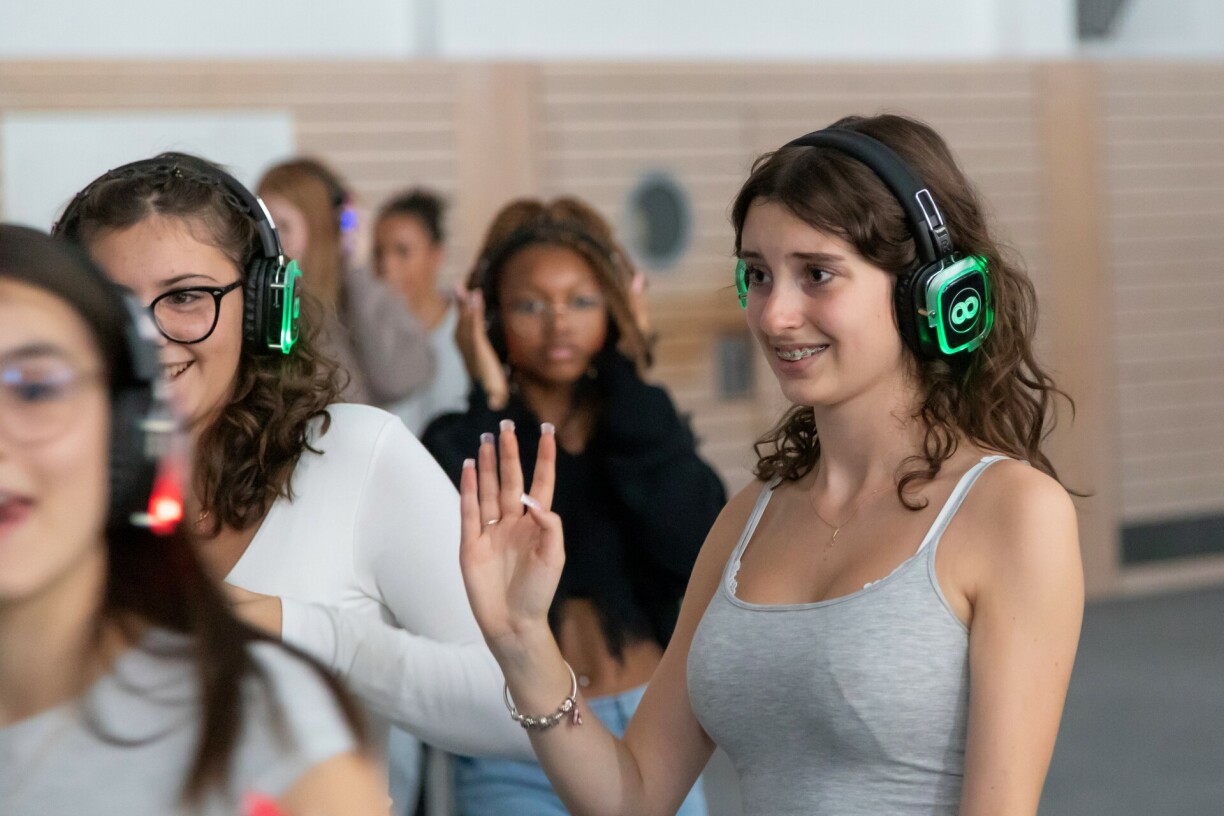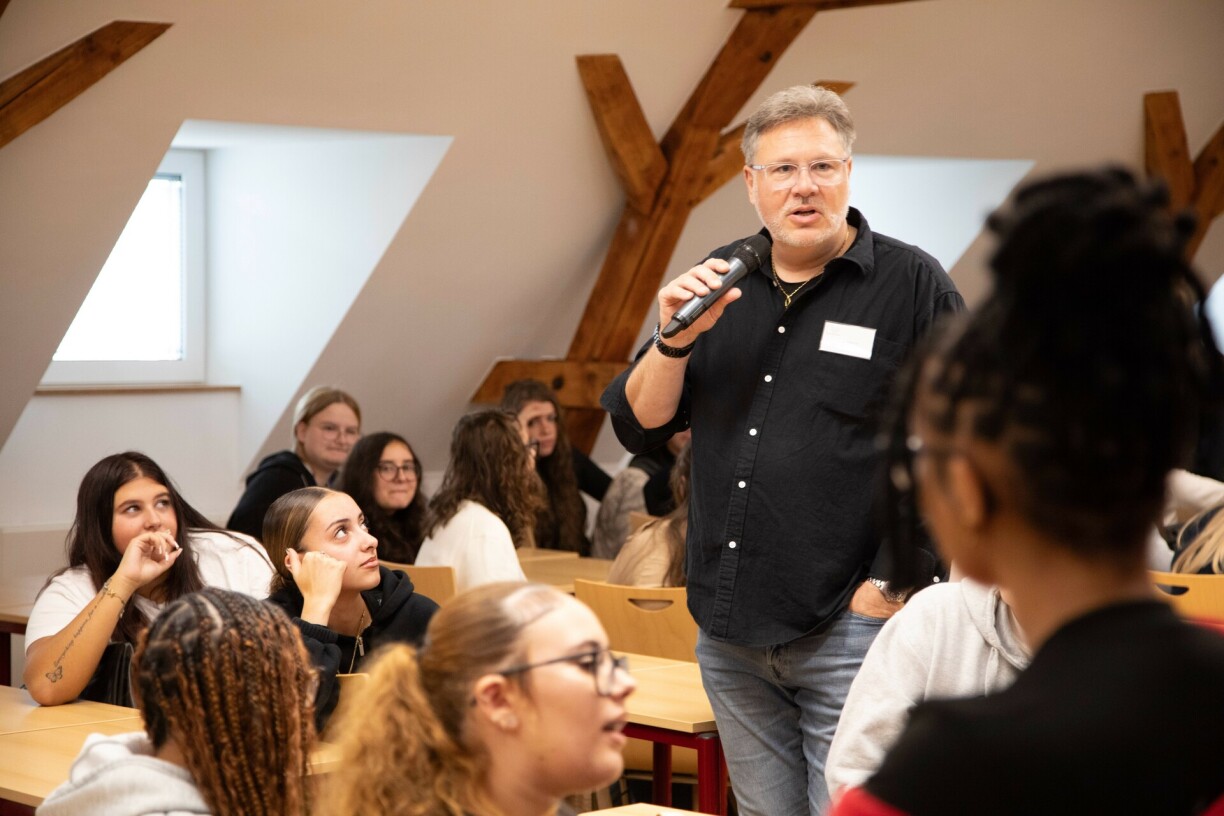
Children and young people’s growing exposure to screens is fast becoming a source of major concern for parents and educators.
In the face of this challenge, on 18 September Sainte-Anne private school organised an initiative designed to raise awareness and help to educate pupils on the responsible use of mobile phones and other technology. Above all, the school sought to highlight the risks linked to screen addiction.
The day coincided with the official launch of the national campaign to prevent phone addiction and excessive screen use in schools.
At Sainte-Anne, teaching staff, led by Kim Weber, worked alongside external teams from Bee Secure, the police and digital media hub EDMO.
“The goal is simply to raise awareness amongst pupils in terms of reducing phone use, and the time they spend in front of screens, as it can cause major issues for health and well-being,” explained headteacher Georges Kayser.

On 30 September 2024, education minister Claude Meisch launched the awareness campaign “For a healthy screen-life-balance for our children”, alongside the president of the national parents’ association Alain Massen.
Among the measures announced by Meisch was the smartphone ban in schools, including at break times, which was introduced on 22 April 2025 in primary schools and 2 June 2025 in secondary schools. It also involves the physical absence of a mobile phone during classes.
At Saint-Anne school, Lis Kayser, one of the Re-Connect organisers, insisted it was important the event would not be perceived as a strict ban on phones – instead, the goal is to to demonstrate the benefits of the digitalisation of our world and to teach pupils how to use phones consciously and independently. Young people must remain in control of their phones, instead of letting them control their lives.
The Re-Connect event encouraged pupils to participate in several workshops. Some were educational, such as the session offered by the Bee Secure online safety group.
Co-organiser Laura Donven said “Bee Secure is well-known in our country, particularly in socio-educational institutions. They update the public on cyber bullying, fake news and so on. This is important because there are so many fake social media profiles out there, false information is circulated, it is hard for younger pupils to recognise when things are fake.”
The idea is to educate children on the dangers linked to the internet and to encourage a reasonable use of screens.
“We also work with Fairtrade, in connection with fashion and clothing,” added Donven. “The idea is to raise awareness among pupils so they know what is hidden behind the big online clothing sites: where do the clothes end up, where are they produced, in what conditions, how much are workers paid. We want to raise awareness and invite people to consider whether they should purchase fast fashion or slow fashion items.”
The day also included more creative workshops, said organiser Axelle Noloni. “The artist Emmanuel Fey visited, as well as a graffiti artist, Pablo Schwickert. We had Vanessa Pinto, the salsa dancer, who taught pupils to dance. The idea is to learn things, to practise an activity, to discover a talent you might not otherwise know about because of the role the smartphone plays in everyday life.”
The children participating in the event seemed to be conscious of the issue and approved of the whole project. “I think it’s a good initiative because lots of people don’t realise what happens on social networks,” a female pupil told RTL. “We need interventions like today to help open our eyes and realise it’s not real life, and that not everything we see is beneficial.”
“I use a lot of social media, TikTok, Instagram and Snapchat, but I set myself limits because it’s addictive. In the quiz, the first question asked how long pupils spend on their phone in one day. The majority answered 5-7 hours and I was really shocked, it’s huge when you think about it.”
The day was overall a success, and a report will be put together over the coming three months to evaluate the results.
Video report in French available below: